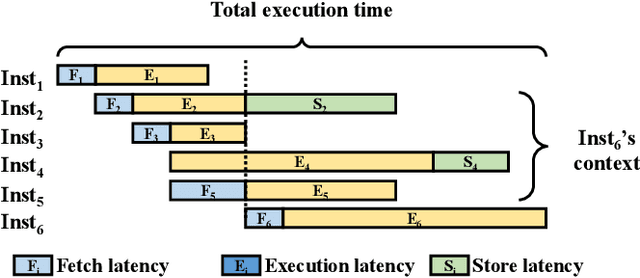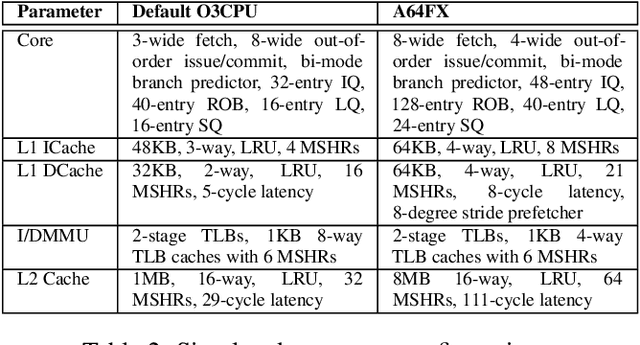Noel Wheeler
SimNet: Computer Architecture Simulation using Machine Learning
May 12, 2021



Abstract:While cycle-accurate simulators are essential tools for architecture research, design, and development, their practicality is limited by an extremely long time-to-solution for realistic problems under investigation. This work describes a concerted effort, where machine learning (ML) is used to accelerate discrete-event simulation. First, an ML-based instruction latency prediction framework that accounts for both static instruction/architecture properties and dynamic execution context is constructed. Then, a GPU-accelerated parallel simulator is implemented based on the proposed instruction latency predictor, and its simulation accuracy and throughput are validated and evaluated against a state-of-the-art simulator. Leveraging modern GPUs, the ML-based simulator outperforms traditional simulators significantly.
 Add to Chrome
Add to Chrome Add to Firefox
Add to Firefox Add to Edge
Add to Edge